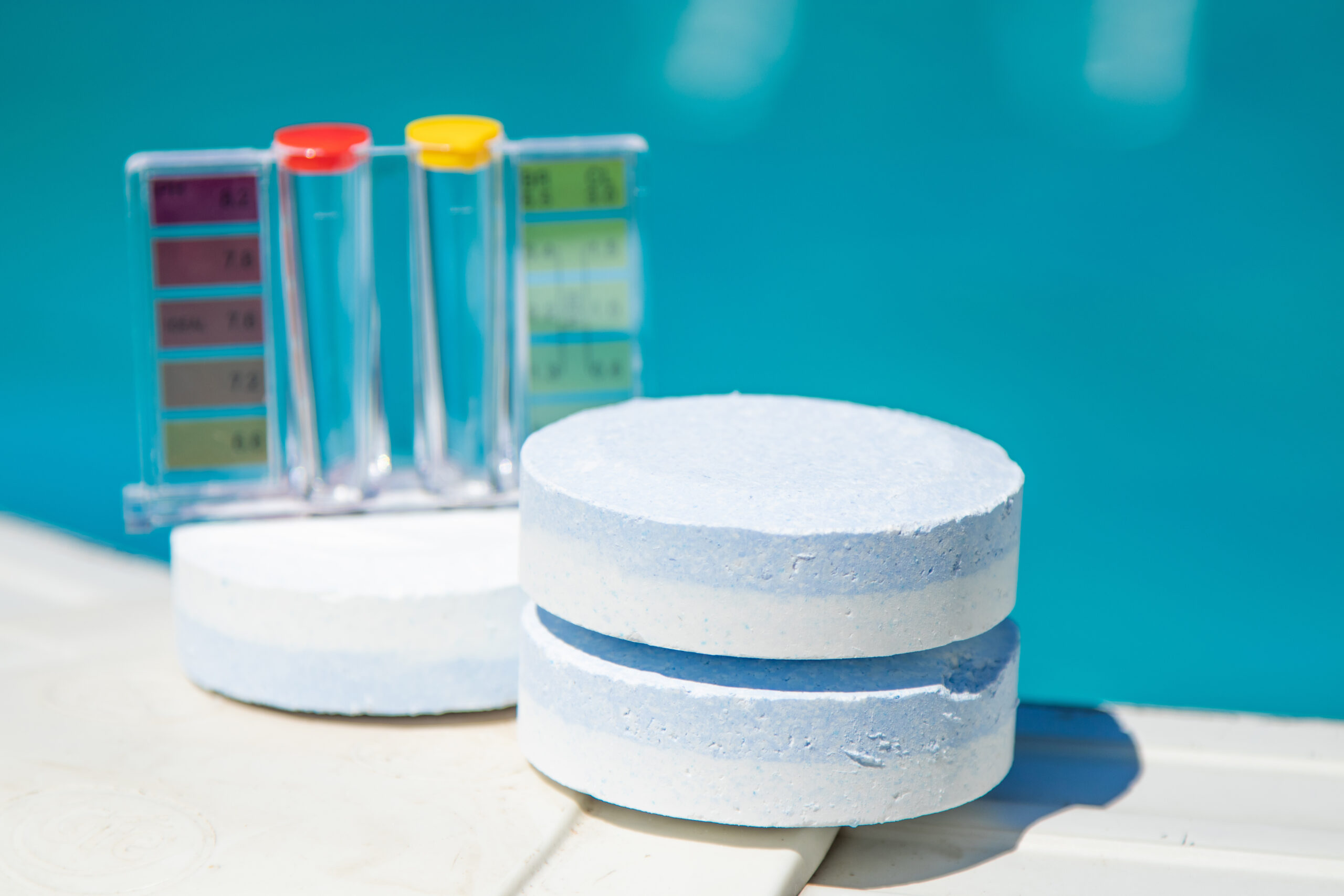
What Chemicals Are In Swimming Pools
If you have a swimming pool that you’re looking to ensure is properly balanced, the first place to start would be to know what chemicals are in swimming pools. The reason why so many chemicals are put in pools is to properly disinfect the waters, while maintaining a water pH of between 7.2 and 7.8. Ensuring that your pool maintenance is up to scratch also plays a part in what chemicals need to be added to your pool. Here, we’re taking a look at what chemicals are typically found in swimming pools and what their role is.
Chlorine
Chlorine is typically the most well-known chemical found in swimming pools. Chlorine is usually added to swimming pools in order to keep them sanitised and free from germs. Swimmers could very easily be exposed to harmful microbes which could lead to illness if the right levels of chlorine are not added to the pool. The amount of chlorine needed in a pool will be dependent on usage and the pH level of the pool.
Hydrochloric Acid
Hydrochloric acid, also known as muriatic acid, is a corrosive substance which is regularly used in pool maintenance. This particular type of acid has a number of functions when used in a swimming pool. Firstly, it has been proven to be highly effective against algae and helps to remove it from the floor and walls of a pool. Hydrochloric acid can also be used to restore the pH of the water to ensure it is balanced correctly. Without the right amount of hydrochloric acid, the water could be too acidic or could have too much alkaline which can lead to a number of adverse side effects including skin rashes and gastrointestinal problems. It could even lead to vomiting, confusion, muscle twitching in more severe cases. Hydrochloric acid is however a highly corrosive substance and could be dangerous if not handled properly – which is why it’s best to use an expert team such as us here at J C Leisure to ensure safe implementation and proper balance.
Sodium Bisulphate
Sodium bisulphate is an acidic salt which has a low density and decomposes quickly when it’s introduced to water. Sodium bisulphate is another substance that can help with the balance of the water, however it is best used for stopping the corrosion of pool equipment, can help to prevent cloudy water, and can help with keeping the water clean and free from bacteria.
Sulfuric Acid
Sulfuric acid is a mineral acid which is made up of sulphur, oxygen and hydrogen. To help to raise the overall acidity of the pool water, you may need to add sulfuric acid. This can properly control the alkalinity of the water and is often used as an alternative to hydrochloric acid. Generally sulfuric acid is used as a cheaper alternative to hydrochloric acid and one of the main benefits to the substance is that has no strong smell even in large amounts. However, it is much more dangerous to handle than the other acids that are used in pools and therefore it is recommended to speak to an expert to determine what the best solution for your pool is.
Sodium Carbonate
Sodium carbonate has a unique function when added to pools, and as opposed to handling just the acidity or just the alkalinity of a pool, it can help to raise both the pH level and alkalinity. This may be needed in the event of a pool becoming too polluted from swimmers and the environment causing the pH levels to drop and the water becoming less hygienic to swim in.






